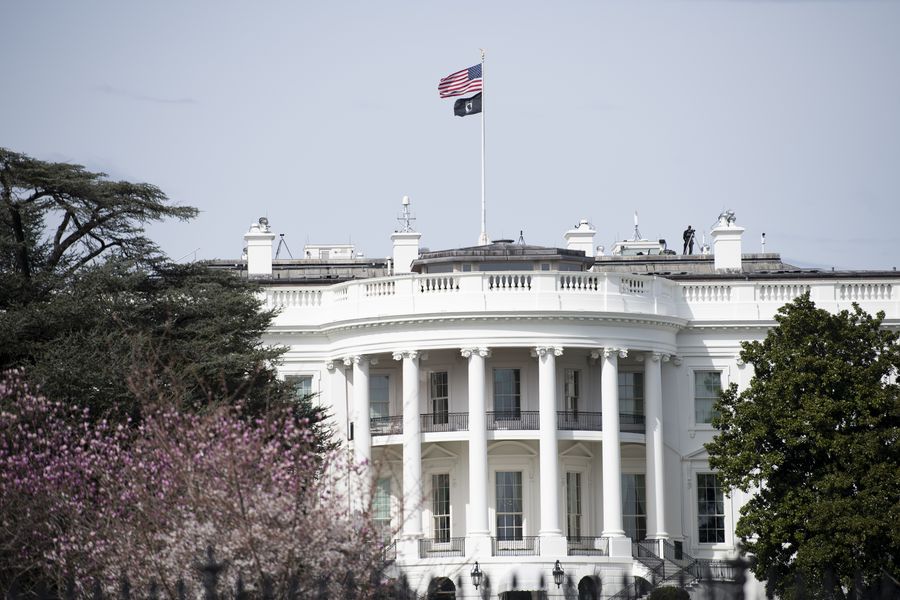
The Taipei 101 skyscraper in Taipei, southeast China's Taiwan region, July 21, 2019. /Xinhua
The Taipei 101 skyscraper in Taipei, southeast China's Taiwan region, July 21, 2019. /Xinhua
Editor's note: Zhou Wenxing is a research fellow at Huazhi Institute for Global Governance, Nanjing University and former Asia Fellow at John F. Kennedy School of Government, Harvard University. The article reflects the author's opinions and not necessarily the views of CGTN.
A C-146A Wolfhound transport aircraft landed at Taipei's Songshan Airport on July 15, the second time that a U.S. military aircraft landed in the Taiwan region within two months. Undoubtedly, this is a flagrant violation of important spirit and consensus – notably the one-China policy that the U.S. government recognized – enshrined in the three China-U.S. Joint Communiques that the two countries signed in the 1970s and 1980s.
Taking into account recent ill-considered U.S. policy measures, the extremely irresponsible and dangerous moves reveal the double-sided policy orientation regarding the Taiwan issue.
On the one hand, the U.S. has declared that it "does not support Taiwan independence" and reaffirms the one-China policy adhered to by previous administrations. Senior officials from the Biden administration, including Secretary of State Antony Blinken, National Security Advisor Jake Sullivan and National Security Council's Coordinator for Indo-Pacific Affairs Kurt Campbell, have repeatedly made it clear that there is no plan for the current administration to significantly alter the U.S.'s Taiwan policy.
On the other hand, on the policy level, the U.S. is weakening its promise on the one-China policy and sending wrong signals to the so-called Taiwan independence separatist forces nevertheless. The seemingly paradoxical policy orientation reveals that, in the hope of winning the strategic competition against China, the U.S. has been salami slicing the Taiwan issue by testing China's strategic bottom line on the issue and therefore "hollow out" its one-China policy.

The White House in Washington D.C., U.S., March 16, 2020. /Xinhua
The White House in Washington D.C., U.S., March 16, 2020. /Xinhua
The landings of U.S. military planes in Taiwan have vividly demonstrated how American policymakers used salami-slicing techniques in the Taiwan Strait. For instance, the landings did happen, but neither stayed too long. The C-146A and C-17 Globalmaster III, the military transport plane landed in Taiwan in June, stayed less than an hour and three hours, respectively, at the airports and then left. Besides, in the name of conducting "humanitarian aid," the C-17 was shipping vaccines to the island.
But they are just the U.S.'s lame excuses if one takes a closer look at some details. First, both military planes are strategic transport planes that are usually engaged in military missions. Second, shipping 0.75 million COVID-19 vaccine doses with the C-17, whose maximum payload capacity is reported with 77,519 kilograms, is totally unnecessary. Shipping a package with the C-146A is just another tempest in a teapot.
The U.S.' provocative moves on the Taiwan issue triggered stern responses from the Chinese Ministry of Defense, Ministry of Foreign Affairs and the Taiwan Affairs Office of the State Council. "Landing of any foreign military aircraft on China's territory can be made only with permission from the government of the People's Republic of China," said Wu Qian, spokesperson for the Chinese Defense Ministry, at a press conference, adding that "trespass by foreign ships or planes into China's airspace will cause serious consequences."
These warnings should never be interpreted merely as China's diplomatic parlance. As Chinese President Xi Jinping emphasized during the speech celebrating the 100th anniversary of the founding of the Communist Party of China in Beijing earlier this month, "No one should underestimate the resolve, the will and the ability of the Chinese people to defend their national sovereignty and territorial integrity," warning that "we will never allow any foreign force to bully, oppress, or subjugate us”and any foreign force attempting to do so will "find themselves on a collision course with a great wall of steel forged by over 1.4 billion Chinese people."
(If you want to contribute and have specific expertise, please contact us at opinions@cgtn.com.)

